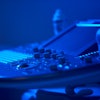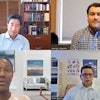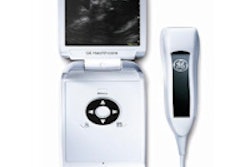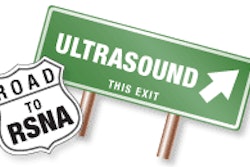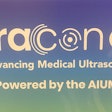Compact ultrasound is becoming a popular technology for deployment or donation to low-resource settings. The World Health Organization has stated in numerous publications that donated equipment must not be inferior to what's used in the developed world, but little is known or published regarding the diagnostic accuracy of these compact ultrasound units, said presenter Dr. Robert Harris of Dartmouth-Hitchcock Clinic.
As a result, the research team sought to compare accuracy and diagnostic confidence between conventional and compact ultrasound systems in more than 55 patient exams with nine sonologists and sonographers interpreting the images in a blinded fashion. None of the readers had much experience using compact ultrasound.
The conventional ultrasound scans were performed using systems from multiple vendors (GE Healthcare, Philips Healthcare, and Siemens Healthcare), while a 180 Plus from SonoSite was used for the compact ultrasound exams.
Diagnostic confidence was better on conventional ultrasound than compact ultrasound, with an overall average score of 4.4 on a scale of 1 (no confidence) to 5 (excellent confidence); compact ultrasound had an average score of 3.5. Accuracy for conventional ultrasound was approximately 80%, which was higher than the 70% gained from compact ultrasound. Both differences were statistically significant.
There is also a significant difference in cost. Conventional ultrasound scanners cost approximately $150,000, while compact ultrasound systems typically cost less than $7,000 to $8,000, he said.
"Given this huge price disparity, but noting the differences in diagnostic confidence and accuracy, it seems that the deployment of compact ultrasound is having the right kind of impact on diagnosis in low-resource settings, given that the interpreters are well skilled/experienced in ultrasound of any form," Harris said.
